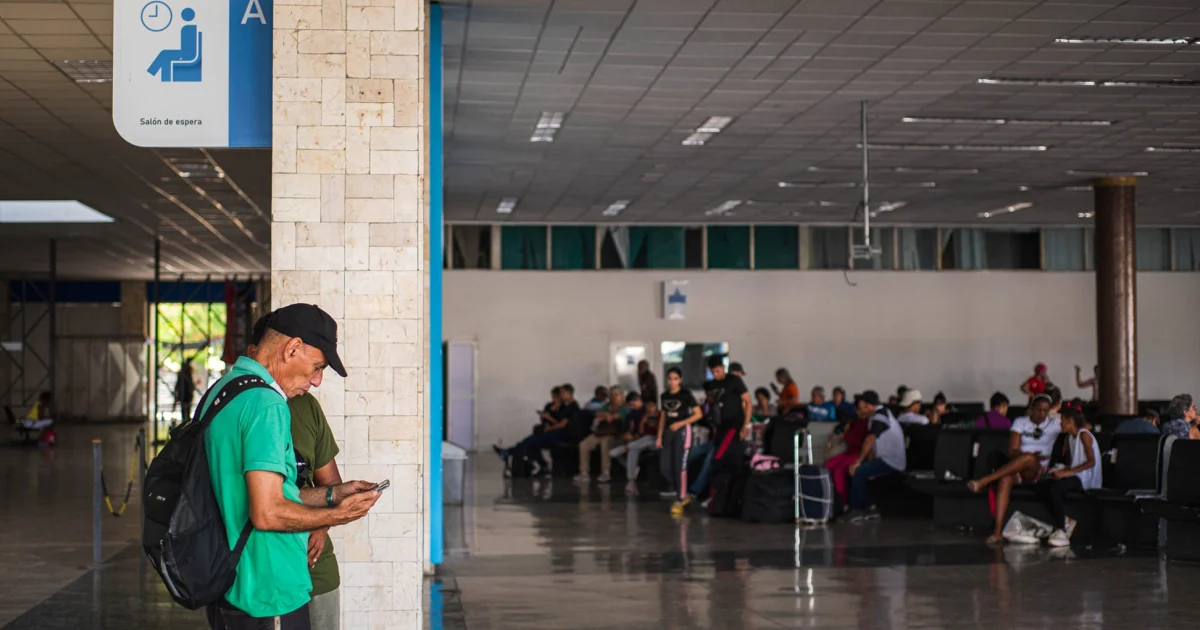
Related videos:
The Cuban government announced a series of modifications to the Viajando app, aimed supposedly at improving the ticketing process for bus and train travel between provinces.
The main change is the reduction in the number of tickets that a user can purchase in the last 30 days. Previously, it was possible to buy 30 tickets, but starting January 6, only 15 can be purchased.
According to the Minister of Transport, Eduardo Rodríguez Dávila, there are numerous overpriced ticket offers online from individuals engaged in buying and reselling through the app, and "the ability for a single person to purchase up to 30 tickets within 30 days encourages this phenomenon."
Other measures that will come into effect on January 6 include the separation of the capacities to be marketed by the application and the reservation agencies, as well as the release of the Apk Viajando update, which includes a module that allows users to view the available capacities in the agencies.
In addition, the commercialization of services provided by new forms of non-state management was approved, "as long as the prices align with territorial approvals and there is a guarantee of the necessary resources (fuels, lubricants, greases) to ensure stability in the service."
The minister added on his Facebook wall that another measure has been authorized, which will not be implemented on January 6, but rather later, as it will depend on the development or modification of the platform itself.
This is: "Separate each day's offerings from the capacities, starting with the long-distance capacities via the app at 6:30 AM, followed by short-distance capacities at 7:30 AM, and keep the day's capacities open for agencies at 8:30 AM as usual."
Regarding the refund for reservations that will not be used, the decision has been made to refund 90% of the ticket price if cancellations are made more than 48 hours before the trip, 75% if made between 48 and 24 hours prior, and 50% for requests made between 24 and 12 hours before the departure of the means of transportation.
Frequently Asked Questions about Changes in the Traveling Application and Transportation in Cuba
What is the main change in the Viajando app for ticket purchases?
The main change in the Viajando app is the reduction in the number of tickets a user can purchase in 30 days, from 30 to 15 passes. This measure aims to curb the resale of tickets at inflated prices, an issue that has been recognized by the Cuban government.
What other measures will be implemented in the Viajando application starting January 6th?
In addition to the reduction of tickets, there will be a separation of capacities between the application and the reservation agencies, and the application will be updated to display the available capacities. A refund of up to 90% of the ticket value will also be provided if the cancellation is made more than 48 hours prior to the trip.
How will the new pricing policy affect the buying and selling of vehicles in Cuba?
The new pricing policy will significantly reduce the cost of imported vehicles in Cuba, decreasing from the current range of 55,000 to 60,000 USD to approximately 15,900 USD. This measure aims to make vehicles more accessible and modernize the automotive fleet on the island.
What impact does the transport crisis have on the daily life of Cubans?
The transportation crisis in Cuba, exacerbated by fuel shortages and deteriorating infrastructure, has significantly reduced the number of vehicles on the road, impacting citizens' daily mobility. This results in long waits and difficulties in accessing basic services, leading to increased social dissatisfaction.
Filed under: